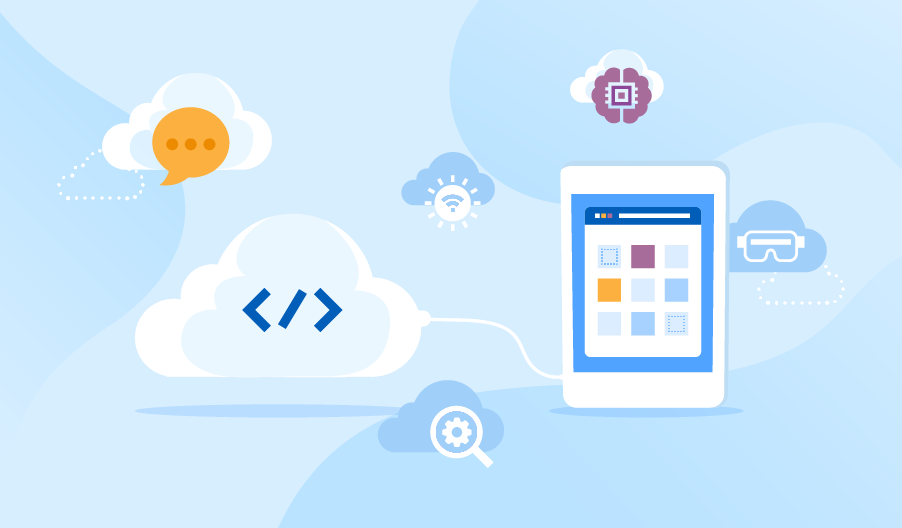Today, more and more companies are turning to cloud-based software for their business needs. Businesses that want to take advantage of the benefits of using a cloud-based app development can benefit by developing mobile apps that are secure and user-friendly. Developing mobile apps in a cloud environment can be challenging, but it’s also an excellent way to streamline your software development processes while still maintaining complete control over your data. In this blog post, we will explain the important differences between developing apps on a local machine versus in a remote cloud environment.
What is software development?
Software is any set of instructions that you create to automate a process or offer a particular function. Developing software is essentially the act of writing code that allows your application to function. When developing software, you usually start with a blank slate and then create an algorithm so that the computer will be able to replicate your actions.

Why develop mobile apps in a cloud environment?
Mobile app development is a booming business. It’s expected that by 2020, the mobile app development industry will grow to $22.7 billion. Of course, that’s just one industry that’s benefitting from using mobile apps to improve the way we do business and communicate. When you plan to develop apps, cloud-based solutions can help you to realize your business goals without having to constantly spend money on personnel and equipment. In addition, cloud-based app development is easier and cheaper than building your own in-house software development team.
Cloud-based app development services let you focus on what matters most: your core business activities. That’s because you don’t need to worry about infrastructure, operating systems, or maintenance. With cloud-based apps, you can focus on creating great software instead of worrying about the software development process.
Benefits of using a cloud-based app development platform
Cloud-based app development platforms provide one-stop shopping for all your software development needs. Whether you need to build desktop or mobile apps, or create IoT solutions, you can use a single platform to manage your entire project lifecycle. Cloud-based app development platforms also provide a wide range of tools and features to help you create state-of-the-art apps. You can use these tools to develop apps for multiple systems, such as multi-device, multi-country, and multi-functional systems.

Cloud-based app development platforms also help you to develop apps faster and more cost-effectively. You can easily work on a single project and break it down into smaller components. You can then assign specific team members to work on each individual component. This helps you to develop apps faster and more cost-effectively.
Advantages of developing apps on remote clouds
Improved security – When developing apps on remote clouds, you can use a variety of encryption tools, such as key management, identity and access management, and data protection.
Reduction in development costs – Cloud-based software development costs are often significantly lower than in-house software development. You can even outsource some of the development tasks to the cloud to save even more money.
Reduced time to market – With remote app development, you can develop faster than with in-house software development. You can also use the same infrastructure for all your remote apps.
Efficient deployment – Remote app development platforms often have built-in tools and processes for deployment, including code versioning, monitoring, and rollbacks. Therefore, you don’t have to spend time on these operations.
No risk of asset loss – Since you develop your apps on remote clouds, you don’t have to worry about the risk of asset loss or data loss.
Disadvantages of developing mobile apps in a remote cloud environment
Inefficiency of development team – Building apps in-house requires a large team of developers. Therefore, a company may have to wait a long time to get the desired features implemented in their apps.
Increased infrastructure and maintenance costs – Because you develop your apps on remote clouds, you have to keep an eye on the cost of the machines and other infrastructure. Therefore, it costs more money to maintain those.
Limited scalability – Remote app development is suitable for single-machine applications. Therefore, you may not be able to scale an application with remote app development.
Risk of asset loss – When developing in-house, the risk of asset loss is high as everyone in the company knows how the app works. When developing with a remote cloud, there is a risk of data loss.
Limited scalability – With in-house development, you can scale your application with hardware upgrades or upgrading the machine. With remote app development, you can scale your apps with other servers or scaling the machine.
Which type of app is better to develop on a local machine or in the cloud?
There are a few factors you must consider when deciding which type of app development is best for your business. If your app is state-of-the-art, is highly complex, or requires a high level of security, then developing it on-premises is probably the best option. However, if your app is simple and doesn’t require a lot of functionality, then remote app development will probably be a better option. A good rule of thumb is to choose the development method that best fits your project needs.

Final Words
The advantages of developing mobile apps in a remote cloud environment are huge. It can help you to save time, gain profit, and increase your productivity. However, the process of developing mobile apps in a cloud environment is challenging, and it has its own share of disadvantages as well. So, we recommend that you should choose either a local machine or a cloud platform for developing your apps.



















